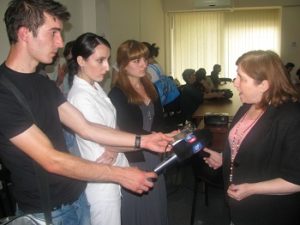LESSON
Lesson Learned: Grassroots Gender Accountability in Uganda
Although written in English, Village Budget Club members found the budget monitoring and service tracking manual easy to use, because (i) English-speaking training facilitators were recruited from within the local community to address possible language and literacy issues; and (ii) at trainee stage, monitors teamed up in pairs comprising of one English speaker, thus enabling easy reference to the manual as and when needed
Project Name
Project Partner
Forum for Women in Democracy
Project Description
The project worked to help women district councillors acquire knowledge and to push the equality agenda with policy makers. The project’s advocacy activities led to improved gender-sensitive service delivery, as the local government budgeted for enhanced services for women and girls. In September 2016, two years after the end of the project, the Government announced that gender sensitive indicators will be used to ensure that all sectors adhere to gender equality in decision making and service delivery in the country.. Visibly empowered district and sub-county councillors expressed with pride their new influence on the gender-sensitive application of laws, policies and local budgets. Former women MP trainees proudly cooperated across party lines on priority issues of the Ugandan women in parliamentary committees.
The approach of putting in place a monitoring system that was run by Village Budget Clubs (VBCs) and district councillors alike was appropriate. The project’s training methodology ensured the transfer of necessary skills such as gender-sensitive analysis, budgeting, caucusing, lobbying and advocacy.
Evaluation Date
April 2014
Country
